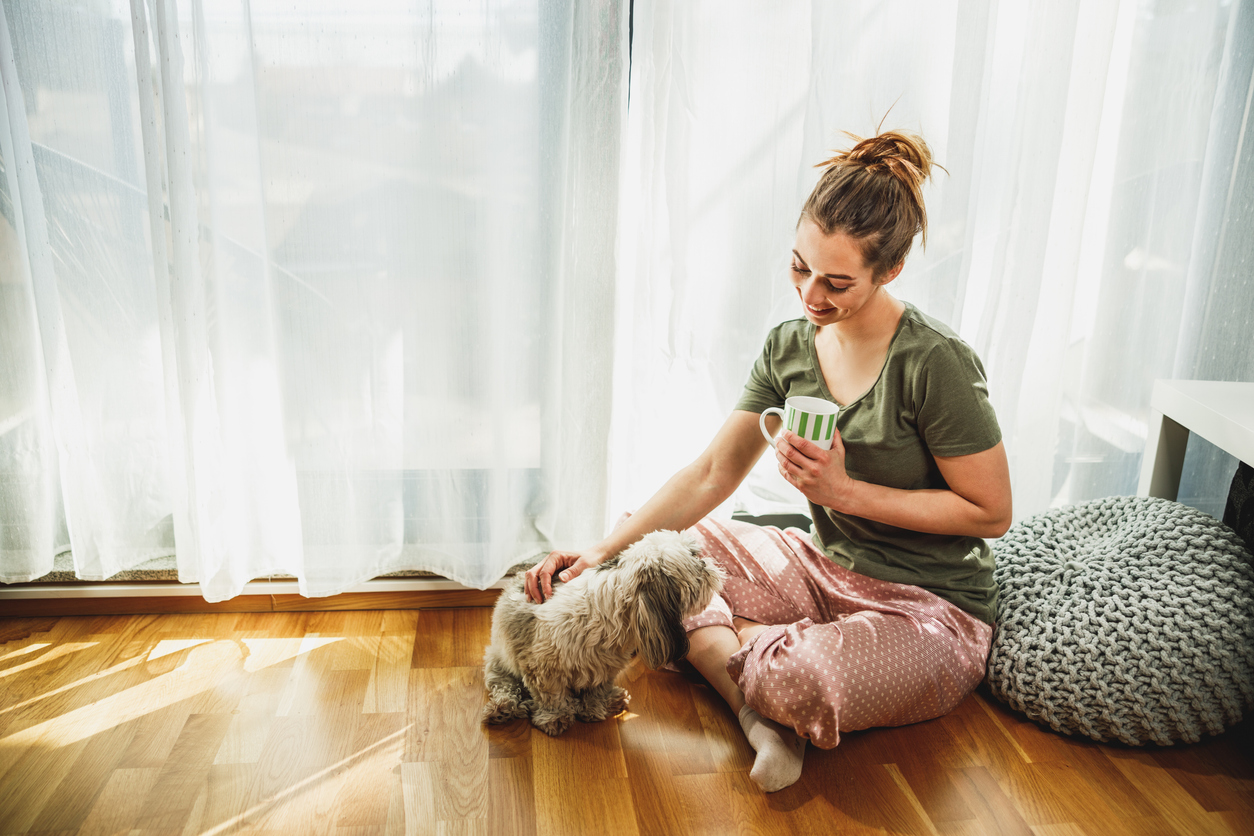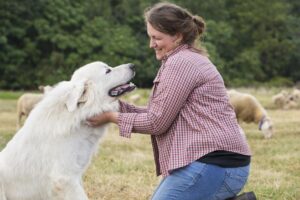Shih Tzus have a personality that’s larger than life. One minute they’re prancing across the living room with a toy in their mouth, the next they’re curled up at your feet like a furry heating pad. These little dogs may not speak your language, but their body talks plenty — if you know how to listen.
Whether you’re a first-time Shih Tzu owner or you’ve had your loyal buddy for years, learning to read their body language makes a world of difference. It helps you catch stress before it becomes bad behavior, notice health issues early, and most importantly, build a bond based on trust and understanding.
Let’s break down exactly what your Shih Tzu is trying to say with every tail wag, ear flick, and goofy wiggle.
Why Reading Shih Tzu Body Language Is So Important
Your Shih Tzu can’t tell you when they’re scared, uncomfortable, or in pain — but they show it. A dog that feels misunderstood might develop unwanted behaviors like barking, chewing, or even snapping. Many times, these behaviors start because the dog feels ignored or anxious and has no other way to communicate.
Understanding your Shih Tzu’s body language is the best way to prevent stress and keep your dog feeling secure. It helps you respond in real time, adjust your training methods, and avoid situations that make your pup uneasy.
You don’t need to be a dog whisperer. You just need to know what to watch for — and to trust your gut when your Shih Tzu’s body says, “I’m not okay with this.”
Tail Talk: What Your Shih Tzu’s Tail Really Means
A wagging tail doesn’t always mean a happy dog. The speed, position, and tension all matter.
When your Shih Tzu holds their tail high and wags it with a loose, flowing motion, they’re content and curious. Maybe they’re greeting you at the door or trotting after you from room to room.
If the tail droops low or tucks under the belly, your dog might be anxious or feeling unsure. You’ll often see this at the vet, during loud noises, or when they meet a bigger, intimidating dog.
A stiff, fast wag that looks more like a vibration than a swing can mean overstimulation or nervous excitement. Be extra mindful when kids are playing rough with your Shih Tzu; they may be overwhelmed even if they’re not barking.
Always look at the tail along with other body signals. A high wag with a playful bounce is good. A high wag with bared teeth or a stiff body can mean your dog is on edge and might snap.
How to Read Shih Tzu Eye Contact
Your Shih Tzu’s eyes can say more than a bark ever could. Soft, squinty eyes with slow blinks mean relaxation and trust. It’s like your dog’s way of smiling at you.
Bright, wide-open eyes signal alertness and curiosity — for example, when they spot a squirrel or hear the treat bag crinkle.
If your dog stares without blinking, with the whites of their eyes showing, that’s a red flag. They’re on guard, uncomfortable, or fearful. You’ll often see this look if a stranger gets too close or during grooming when they’ve had enough.
When you see hard eyes and tension in the face, give your dog space. Don’t force hugs or loud praise — instead, use calm reassurance and remove the stressor if possible.
Ears Up, Down, or Back: Shih Tzu Ears Explain It All
Even though a Shih Tzu’s ears are covered in hair, they’re still great mood indicators.
Relaxed ears held naturally show your pup is content. When they perk up and tilt forward, your dog is curious, paying close attention, or hearing something new.
Flattened ears pressed tightly back against the head usually mean fear or submission. Combined with a lowered body and tail tuck, it’s a clear sign your Shih Tzu feels threatened or overwhelmed.
Some dogs pull their ears back slightly when they’re being affectionate too — watch for the difference. Paired with a wagging tail and happy wiggles, it’s a love signal, not fear.
Facial Expressions and Mouth Clues
Look at your Shih Tzu’s mouth. A slightly open mouth with a gentle pant or tongue lolling out usually means they’re at ease. This is their version of a relaxed grin.
A closed mouth with tight lips can be a sign of discomfort or stress, especially if the rest of the body stiffens up. Excessive lip licking (when not eating) or yawning during training means your dog is trying to calm themselves down — it’s their subtle way of saying, “I’m a little stressed right now.”
Another clue is teeth showing. A relaxed grin with the mouth open and the tongue hanging out is normal. But if your Shih Tzu curls their lips back, revealing more teeth and growling, that’s a serious warning to back off.
Posture Speaks Louder Than Words
A confident, happy Shih Tzu stands tall but loose. They move fluidly, bounce around during play, and offer the classic “play bow” — front paws stretched forward, rear end in the air, tail wagging madly.
A stiff body with weight shifted backward is a big sign of fear or uncertainty. Watch for raised hackles too (the fur along their back standing up). It doesn’t always mean aggression — it often just means your dog is startled or nervous.
If your Shih Tzu freezes in place when approached by a stranger or during handling, that’s not them being stubborn. They’re overwhelmed and asking for space in the only way they know how.
Subtle Signals You Should Never Miss
Beyond the obvious wags and bows, your Shih Tzu constantly uses micro-signals. Here are a few owners overlook:
- Paw Lifting: If your dog lifts one paw while standing still, they’re feeling uncertain or want your attention.
- Shaking Off: Like drying off after a bath, a big shake relieves tension after a stressful moment — such as a loud sound or an awkward greeting.
- Sniffing the Ground: Sometimes, this is a calming behavior in social situations. It helps defuse tension.
Pay attention to these tiny cues, especially during walks or when meeting new people and pets.
Vocal Clues Complete the Picture
Body language works hand-in-hand with sound. A happy bark paired with a play bow says, “Let’s have fun!” A low growl with a stiff body means, “Back away, please.”
Some Shih Tzus are “talkers.” Soft grumbles, whines, or even howls can show excitement, boredom, or the need for a bathroom break. The tone tells you everything: high-pitched is usually friendly; low and deep is serious.
If your dog suddenly becomes more vocal than usual, consider what’s changed: new visitors, different routine, or maybe they’re feeling under the weather.
Reading Body Language in Common Situations
During Grooming:
Watch for signs like pinned ears, whale eyes, and stiff posture. These mean your Shih Tzu is uncomfortable. Take breaks, use calm praise, and make grooming sessions short and sweet.
Meeting New Dogs:
Loose body, wagging tail, and wiggly butt mean your dog wants to say hi. Stiff legs, raised hackles, or a frozen stance mean they’re unsure. Step back, give space, and never force interaction.
At the Vet:
Most Shih Tzus tense up at the vet. Look for trembling, tail tucked tight, or excessive yawning. Bring a favorite toy or blanket for comfort, and talk softly during exams.
How to Respond When Body Language Signals Stress
If your Shih Tzu shows signs of anxiety or fear, the best thing you can do is stay calm. Yelling or forcing them into a scary situation only makes things worse. Instead, remove them from the trigger if possible. Redirect with treats or a toy. Praise calm behavior. And give them time to adjust at their own pace.
For long-term success, positive reinforcement training builds confidence. Never punish fear-based reactions — it teaches your dog to hide their signals rather than trust you to help.
You and Your Shih Tzu: A Team Built on Trust
Reading Shih Tzu body language is not about memorizing rules — it’s about paying attention. Over time, you’ll know exactly what your dog needs with just a glance. You’ll notice the subtle shift in posture, the meaning behind that particular bark, and the comfort behind a lazy tail wag.
When you respond with understanding, your Shih Tzu feels heard — and that trust creates the happiest, most loyal bond you could ask for.
So next time your Shih Tzu tilts their head, wags their tail just so, or lets out a soft sigh at your feet, know they’re saying what every Shih Tzu loves to say: I’m happy because I’m with you.




